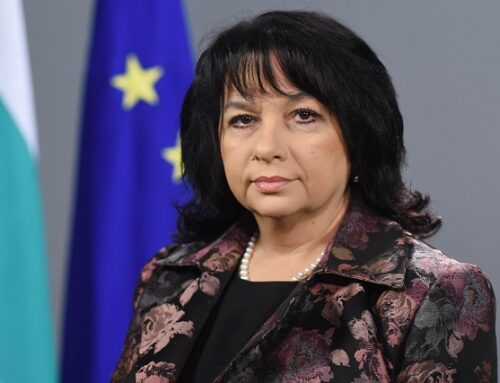Bulgaria has been steadily upgrading its educational system since 1989 in spite of a number of challenges, and the government’s Europe 2020 strategy sets ambitious goals for Bulgarian education. Sergei Ignatov, Minister of Education, explains that one hurdle the country’s educators have to overcome is a widening gap between computer savvy young people and an older generation which has little or no experience with new technologies.
In addition, changes in Bulgaria have been so pronounced in so many areas over the past few years that many people are not yet ready for changes in the educational system as well. Minister Ignatov says, “Our educational system is at a medium level compared to the EU. We still need to modernise many things, including changing people’s attitudes. We need to conduct a dialogue with the population to convince people that the old way was not better.”
The Ministry of Education is in the process of modernising the educational system at every level, from preschool to university. A guiding principle is to make the system more student centred. “We want to focus on developing each student’s individuality, which cannot be done in a teacher oriented system. We need to change practices, attitudes and textbooks. Children need textbooks adapted to their age group and they need to feel they have acquired the necessary skills to develop themselves in the future,” Sergei Ignatov believes.
Stepping up pace of reforms

In spite of the problems, Bulgarian students have won many international competitions in math and science, and medical training in Bulgaria has reached EU standards. Reforms are still needed, however, and the pace of reforms needs to be stepped up: Sergei Ignatov points out that some reforms agreed on in the 1990s were only introduced this year.
Another priority is to adapt educational programmes to the evolving needs of the job market. “Unless we change our system, Bulgaria will experience a brain drain,” the minister believes. He adds that another focus for the Ministry of Education is to change the process for certifying teachers to ensure the highest quality professionals in the classroom.
The Ministry of Education has organised a number of “round tables” on Bulgaria’s educational system, inviting participation from teachers and the general public in discussions of textbooks and other issues. “This has had a very positive effect because it has created more awareness of the educational system and the need for changes,” Sergei Ignatov says.




